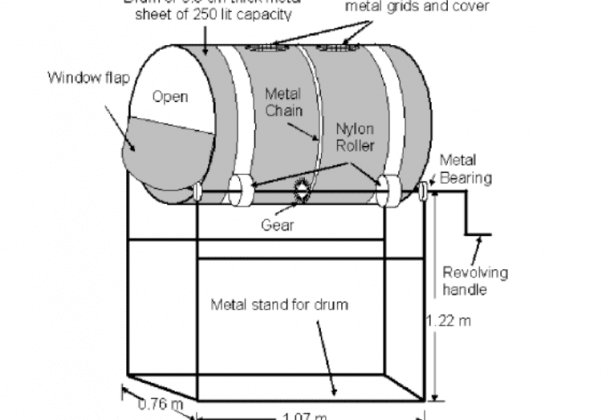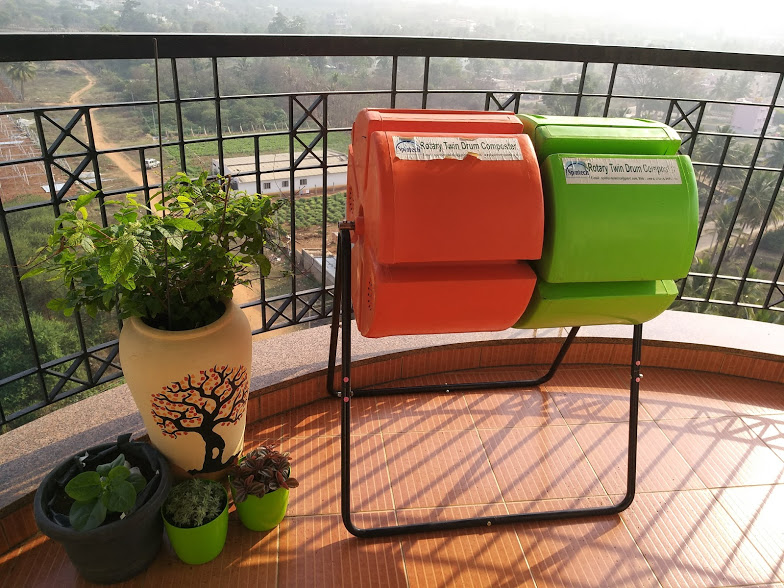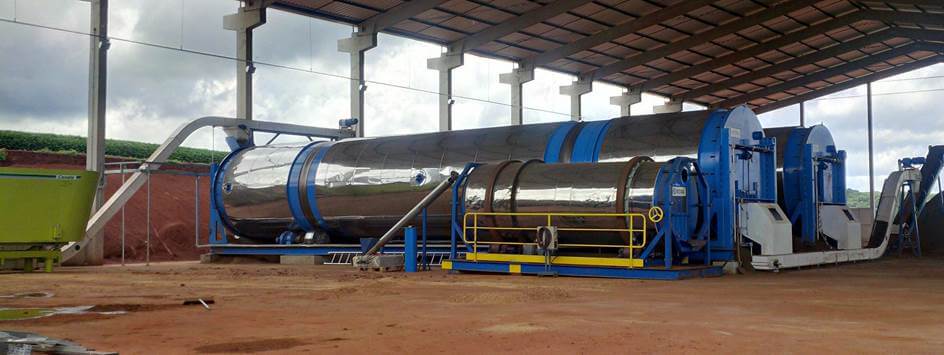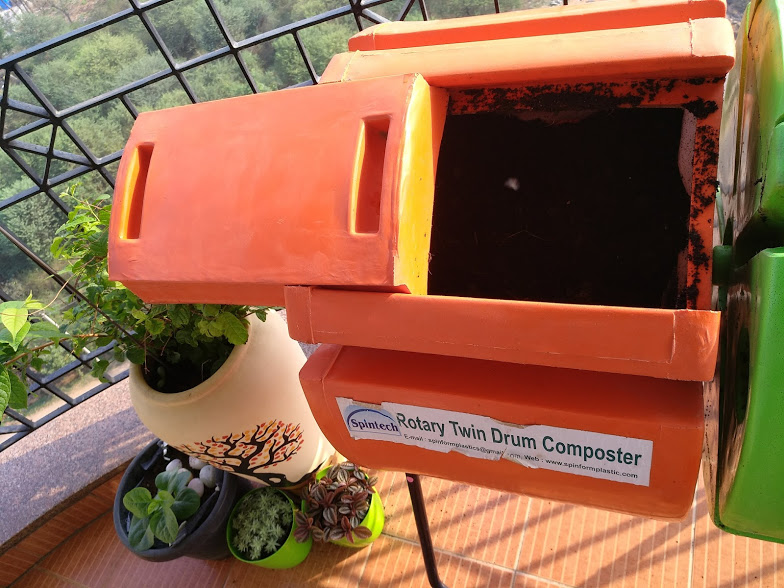Rotary Composter: The Easy Way To Make Compost
Title: Rotary Composter: The Easy Way to Make Compost
Introduction:
Composting is the process of breaking down organic materials into a nutrient-rich soil amendment. It's a great way to reduce your waste, improve your soil quality, and help the environment.
There are many different ways to compost, but rotary composters are one of the easiest and most efficient methods. Rotary composters are large drums that are rotated on a regular basis. This helps to mix the materials and expose them to oxygen, which speeds up the composting process.
In this blog post, we'll discuss the benefits of using a rotary composter, how to choose the right one for your needs, and how to get started composting.
Benefits of Using a Rotary Composter:
- Easy to use: Rotary composters are very easy to use. Simply add your food scraps and yard waste to the drum, and rotate it on a regular basis.
- Fast composting: Rotary composters can speed up the composting process by as much as 2-3 weeks. This is because the rotation helps to mix the materials and expose them to oxygen, which the microorganisms that break down the waste need to thrive.
- Small footprint: Rotary composters are relatively small, so they can be stored in a backyard or even on a balcony. This makes them a great option for people who live in small spaces.
- Versatility: Rotary composters can be used to compost a wide variety of materials, including food scraps, yard waste, and even manure.
How to Choose a Rotary Composter:
When choosing a rotary composter, there are a few factors to consider:
- Size: The size of the composter will depend on how much waste you generate. If you have a small household, you can get away with a smaller composter. However, if you have a large household or generate a lot of waste, you'll need a larger composter.
- Materials: Rotary composters are typically made from plastic, metal, or wood. Plastic composters are the most affordable, but they can be less durable than metal or wood composters. Metal composters are more durable, but they can be more expensive. Wood composters are a good option if you want a composter that looks natural, but they can be more difficult to maintain.
- Features: Some rotary composters have features that make them easier to use, such as lids with vents, wheels, and handles. If you have a disability or mobility issues, you may want to choose a composter with these features.
How to Get Started Composting:
Once you've chosen a rotary composter, it's time to get started composting! Here are the basic steps:
- Add your food scraps and yard waste to the drum.
- Rotate the drum on a regular basis.
- Keep the drum moist, but not wet.
- Wait for the compost to finish.
The composting process can take anywhere from a few weeks to a few months, depending on the materials you're composting and the conditions in your composter. Once the compost is finished, you can use it to improve your soil quality.
Conclusion:
Rotary composters are a great way to make compost quickly and easily. If you're looking for a way to reduce your waste, improve your soil quality, and help the environment, a rotary composter is a great option.
If you are interested in learning more about rotary composters, I recommend visiting Garden Wiki. This website has a wealth of information on rotary composters, including how they work, the benefits of using them, and how to choose the right one for your needs.
FAQ of rotary composter
- What is a rotary composter?
A rotary composter is a type of composter that uses a rotating drum to help break down organic materials. This type of composter is often used for home composting, as it is relatively easy to use and maintain.
- How does a rotary composter work?
The rotating drum in a rotary composter helps to mix the organic materials, which allows for better airflow and moisture distribution. This helps to create the ideal conditions for the microorganisms that break down the materials.
- What are the benefits of using a rotary composter?
There are several benefits to using a rotary composter, including:
* They are relatively easy to use and maintain.
* They can be used to compost a variety of organic materials.
* They can be used in a variety of settings, including indoors and outdoors.
* They can help to reduce the amount of waste that goes to landfills.
- What are the drawbacks of using a rotary composter?
There are a few drawbacks to using a rotary composter, including:
* They can be more expensive than other types of composters.
* They can take up more space.
* They can be noisy if they are located near a living area.
- How long does it take to make compost in a rotary composter?
The amount of time it takes to make compost in a rotary composter depends on a number of factors, including the type of materials being composted, the size of the composter, and the climate. However, in general, it can take anywhere from a few weeks to a few months to make compost in a rotary composter.
- What are some tips for using a rotary composter?
Here are some tips for using a rotary composter:
* Start with a balanced mix of brown and green materials.
* Keep the compost moist, but not soggy.
* Turn the compost regularly to help aerate it.
* Be patient! It takes time to make compost.
Image of rotary composter
- A rotary composter sitting in a garden.

- A close-up of the rotating drum of a rotary composter.
- A pile of compost inside a rotary composter.

- A person turning the drum of a rotary composter.

- A rotary composter made from wood.

- A rotary composter made from plastic.

- A small rotary composter for home use.

- A large rotary composter for commercial use.

- A rotary composter with a lid.

- A rotary composter with aeration holes.

Post a Comment for "Rotary Composter: The Easy Way To Make Compost"